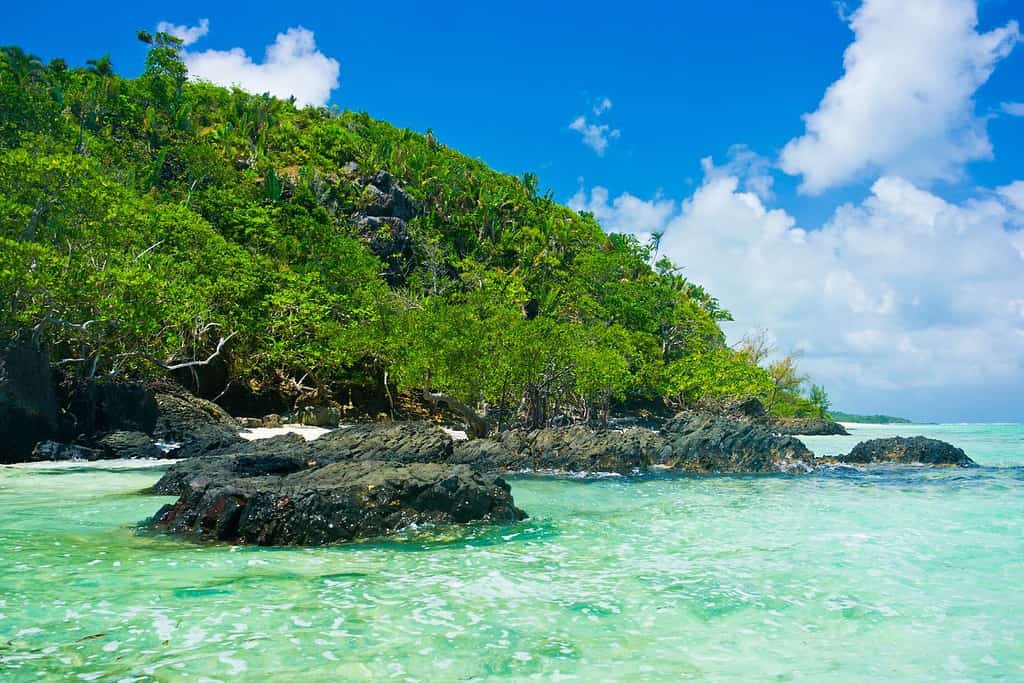Table of Contents
Where is Madagascar located? Madagascar is an island nation located in the Indian Ocean, off the eastern coast of the African continent. It is the fourth largest island in the world.
Madagascar is situated in the southwestern part of the Indian Ocean, with its nearest neighbor being the African mainland to the west. The island is approximately 400 kilometers (250 miles) off the coast of Mozambique, which is the closest point of land on the African continent.
Where is Madagascar located: Africa.
Location of Madagascar on the World Map
Madagascar World
Map of Madagascar.
Madagascar Profile – Where is Madagascar located
Here are 10 of the most important facts about Madagascar:
- Official Name: Republic of Madagascar
- Capital City: Antananarivo
- Population: Approximately 27.7 million (as of 2021)
- Official Language: Malagasy and French
- Currency: Malagasy Ariary (MGA)
- Major Religion: Traditional and indigenous beliefs, Christianity (both Roman Catholic and Protestant), and Islam
- Government: Semi-presidential republic
- Area: Approximately 587,041 square kilometers
- GDP (Gross Domestic Product): $12.8 billion (as of 2021)
- Main Exports: Vanilla, coffee, textiles, cloves, and precious stones.

Borders of Madagascar
Madagascar does not share land borders with any countries as it is an island nation.
Most Extreme Points of Madagascar
Madagascar boasts several extreme points in various directions:
- Northernmost Point: Near the border with Comoros and the Indian Ocean, off the coast of Antsiranana.
- Southernmost Point: The southern tip of the island, in the region of Cap Sainte-Marie.
- Easternmost Point: The point on the Indian Ocean coastline, near the city of Toamasina.
- Westernmost Point: The point on the Mozambique Channel coastline, near the town of Morondava.
Highest Points of Madagascar
The highest point in Madagascar is Maromokotro, reaching an elevation of approximately 2,876 meters above sea level. It is part of the Tsaratanana Massif.
| No. | Mountain | Elevation (meters) |
|---|---|---|
| 1 | Maromokotro | 2,876 |
| 2 | Tsaratanana Peak | 2,642 |
| 3 | Boby Peak | 2,658 |
| 4 | Tsiafajavona | 2,643 |
| 5 | Karambony | 2,554 |
How big is Madagascar?
Madagascar covers an area of approximately 587,041 square kilometers, making it the 46th largest country in the world.
Comparison with Neighboring Countries
Here is a comparison of Madagascar with its neighboring countries based on approximate size and population as of 2021:
| Country | Approximate Size (sq. km) | Approximate Population | Madagascar’s Size Compared to Neighboring Country | Madagascar’s Population Compared to Neighboring Country |
|---|---|---|---|---|
| Comoros | 2,235 | 0.9 million | 22.79 times smaller | 2.24 times smaller |
| Mauritius | 2,040 | 1.3 million | 24.84 times smaller | 1.56 times smaller |
| Mozambique | 799,380 | 32 million | 0.09 times smaller | 0.07 times smaller |
| Seychelles | 459 | 0.1 million | 435.15 times smaller | 9.34 times smaller |
What to Visit in Madagascar?
Madagascar offers a rich blend of natural beauty, unique wildlife, and cultural treasures. Here are the top 10 tourist attractions:
- Avenue of the Baobabs: Also known as the Alley of the Baobabs, this iconic natural wonder features ancient, towering baobab trees that create a stunning and surreal landscape.
- Antananarivo: The capital and largest city of Madagascar, known for its vibrant markets, historic sites like the Rova of Antananarivo, and the Tsimbazaza Zoo.
- Andasibe-Mantadia National Park: A biodiverse haven for wildlife enthusiasts, this national park is home to lemurs, chameleons, and a wide array of unique flora and fauna.
- Tsingy de Bemaraha: A UNESCO World Heritage Site, Tsingy de Bemaraha is famous for its otherworldly limestone formations, underground rivers, and diverse ecosystems.
- Nosy Be: An island paradise in the Indian Ocean, Nosy Be is renowned for its pristine beaches, water sports, and the Lokobe Nature Special Reserve.
- Avenue of the Palms: Similar to the Avenue of the Baobabs, this avenue features a captivating line of towering palm trees, creating a picturesque corridor.
- Ifaty: A coastal town known for its stunning coral reefs, making it a popular destination for snorkeling and diving enthusiasts.
- Isalo National Park: A breathtaking park known for its rugged canyons, natural swimming pools, and unique sandstone formations.
- Antsirabe: A charming highland city known for its thermal springs, traditional pousse-pousse (rickshaw) transportation, and craft workshops.
- Mahajanga: A coastal city with a lively atmosphere, beautiful beaches, and a mix of French and Malagasy cultures.
These Madagascar destinations offer a diverse array of experiences, ranging from delving into ancient history and cultural significance to immersing yourself in bustling city life and marveling at the natural beauty of its landscapes. Keep in mind that certain locations may have specific regulations or entry prerequisites, particularly places of religious importance. Therefore, it is crucial to verify these details before arranging your trip.
More About Madagascar
[the-post-grid id=”50392″ title=”Madagascar Main page”]
